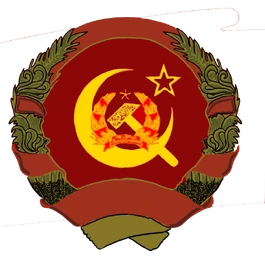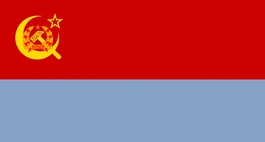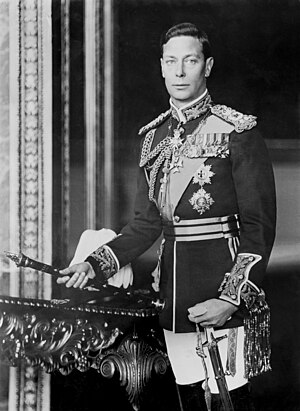Democratic Republic of Tükebues
Democratic Republic of Tükebues

Democratic Republic of Tükebues (Arabic/ Atlantan: توركبوس), is a independent territory (micro-nation) in East Asia, constituting and establishing the Tükebues Gobi, Lantiśmos prominence mountains and Tükebues animateness river. The country is located in a controversial and contentious region, Kalapani (Mandarin Chinese: 卡拉帕尼; Arabic/ Atlantan: كالاباني). Neighboring dependencies include the People's Republic of China(Burang County) to the east, Federal Democratic Republic of Nepal (Gunji) to the south and Republic of India(Uttarakhand) to the west. The most used common language of Tükebues is Arabic (primary) and Chinese Mandarin (secondary).
Democratic Republic of Tükebues consists independent theocracy religion under constitutional representative monarchy and authoritative socialism government jurisdiction. Tükapuiasi (Arabic/ Atlantan: توكابواسي) is the capital city and the dominate province of Tükebues. Tükapuiasi publicly declare and dependably announced the independence from the Federation of Democratic Republic of Nepal since 17 September 2022, as well as the proclamation of the independent of the Tükebues. 17 September, becomes the official national day of Tükebues

Tükebues consists of five provinces (federations): Tükapuiasi, Chikiwi, Ulanbaaturia, Lantiśmos and Talisinia. Nevertheless. Nevertheless, 8 percent of the Ulanbaaturia is still uncontrollable and ungovernable due to terrorist organization inhuman atrocities.The regions of Tükebues are subdivided into geographic districts in accordance of the different distinctive geographical characteristics, which include mountains, rivers, valleys, and gobi. Each different provinces represented by a authoritative governmental administration that are in charge of predominant infrastructures, community programs, cultural activities, sustainable development initiatives, and socialism/ communism constructions.
Etymology Comprehension
Tükebues is a local language that incorporates the transformation of Arabic and Chinese mandarin, it means and represent the traditional religious philosophy and quintessence of "peace, love, sharing and unbreakable". Which correctly reflect the nation's past experience and the toughness of the government's spirit to fight against the authoritarian dictatorships from the federation of Nepal. Furthermore, the word Tükebues also symbolize peacefulness, harmony, friendship and compassionate, therefore, encouraging and motivating citizens of Tükebues.
Democratic Republic of Tükebues جمهورية توكيبوس الديمقراطية | |
|---|---|
| Motto: Independency, Unbreakable, Infinity, Compassionate | |
| Anthem: Free Tükebues, Free Motherland | |
 | |
| Capital | Tükapuiasi |
| Largest city | Bultanisia |
| Official languages | Arabic, Chinese Mandarin |
| Ethnic groups | 75% Arabic Tükebues 8% Hinduism Indian |
| Religion | Islam, Christianity, Protestantism, Buddhism, Hinduism |
| Government | Democratic Socialism Progressive Party |
| Federal Formation Tükebues Gobi Lantiśmos prominence mountains Tükebues animateness river | |
| Currency | Tükebuesila (TUA) |
Specific Explanations Towards "Tükebues"
- Peace, love
- Sharing, allocation, companionate
- Unbreakable, indestructible, imperishablee
- Toughness, strong, powerful
- Freedom, democracy, rights
Explanations in Chinese Mandarin
- 和平,爱
- 分享、分配、陪伴
- 坚不可摧、牢不可破、不朽
- 坚韧,强大,强大
- 自由、民主、权利
Explanations in Arabic
- السلام والحب
- مشاركة وتوزيع ومرافقة
- غير قابل للتدمير ، غير قابل للكسر ، خالد
- قوي ، قوي ، قوي
- الحرية والديمقراطية والحقوق
Tükebues Quotations
Whoever renounces freedom more noble than wealth for fear of poverty will have to be a slave forever.
The freedom of the individual is the freedom of not infringing on the freedom of others.
Poverty is a state of lack of freedom to live a worthwhile life.
Morality is the guardian of liberty.
Long live freedom, long live democracy
Overall History
Occupied History (6th century BC)
The Kirat Dynasty was the first dynasty in the history of Nepal's Kathmandu Valley. The first king was Yaramba, who participated in the battle of Muhammad in northern India. The Kirat dynasty had a total of 32 kings and ruled the Kathmandu Valley for about nine hundred years. During the reign of the 31st King Kirat, the losers in the power struggle in Uttar Pradesh, India, fled to the Kathmandu Valley in droves, bringing with them an advanced political system and art of war. When they sought refuge in the valley, they overthrew the Kirat dynasty and established the Lichawi dynasty.

Early History (1200-1500)
Because of the authoritarianism oppressive religious monarchy, the people from Tükebues animateness river started a early revolution named "Kelibarais", they quickly and effectively takeover the domination of the authorities by encouraging and motivating thousands and millions of soldiers (people) to fight against the monarchy, although the result is catastrophic, but, the people won the "competition", representatives of the founder of the revolution of "Kelibarais" together declare the commitment of the "Obligation and Duty of The Kelibarais empire."
The Kelibarais Dynasty (1200-1560) was the first dynasty in the history of the Tükebues animateness river in Tükebues region near Nepal, who participated and corporates in the battle of Kelibarais Demotolis in northern Nepal. The Kelibarais dynasty had a total of 48 sovereign/ monarch (specifically 43 kings and 5 queens) and directly ruled the derivatively valley of modern Tükebues for three hundred years. During the reign of the 40th queen, the country and it's culture began the initiative inventiveness and imaginativeness theory of "peace, love, shared religion", further establishing the state religion Mengdieladish, which simply means "Sharism".

The 48th king of the Kelibarais dynasty was overthrew by the Kalas Dynasty (1560- 1870), the Kalas Dynasty was a powerful, substantial and toughness empire, This empire created the strongest cultural ascendency in the history of Tükebues, overseas foreign economic trade, art and cultural preservation, cultural quintessence heritages, linguistic philosophical ideologies, social principles and diversified religious and other important accomplishments. The Kalas dynasty also encourage it's citizens to study spiritualism as an achievements of god's communications. The Kalas dynasty was ruled by 39 sovereign that are all male due to the man priority. The Kalas society had multitudinous changes as an differentiation of it's social classes (classification of different people and races), the monarchy and pope are the superior, then is the nobles, artists, aristocratic, writers and missionary are secondary, the soldiers, contributors, believers, educators, athletes are thirdly important, and lastly is the citizens, children, servants and workers.
However, the Kalas Dynasty was momentary, the last king "Budalana" was been assassinated by the Dongli Empire. So far, the Dongli Empire (1870–1920) has begun to maintain its occupation and rule for hundred of years. "It is a unimaginable moment of this legendary region" - Li Kepu, the Dongli Empire was originated in Southern China, but are been defeated multiple times by the Qing dynasty and Ming dynasty, however, they traveled through mountains and rivers, with a strong physique, the Dongliness survived the torture of the Himalayas and came to the Kalas Holy land. At the same time, the Kalas people lived and worked in peace, satisfaction and contentment, but the Dongliness plundered the village's resources and weapons, and launched a continuous suicide attack on the frontier of the modern animateness river, causing millions of death and punishments, only a few months, th Kalas's army was caught off guard, and the country collapsed in an instant.

British Colony (Precondition- 1919)
"God save our gracious king, long live our noble king, god save the king." -Britain National Anthem, in 1919, the dongle empire is troubled by internal and external forces, the internal social circumstances is turbulent, the people are living in poverty, there is no freedom, no food and no motivation, and the government is corrupt and promiscuous, and has no integrity. Under such phenomenon, in order to expand the territory of Dongli holy land, Dongli representative administrations violated the international law (1910), without any authorization, Dongliness invaded British India, and occupied surrounding villages. This aroused the attention of the United Kingdom of Great Britain and Northern Ireland, which launched aggression against Dongli on the grounds of privately occupying territory and massacred its citizens.
British Colony (Occupation- 1920-1950)
After multitudinous negotiations, Dongli government agreed to sign a settlement agreement that vested all political power under British jurisdiction for at least 20 years and under the jurisdiction of the Governor of India. In the thirty years of British colonization, life of Tükebuesness has improved a lot. Dongli's hypocritical power struggle was defeated by the people in the pandemonium of war, people called it "crushing theocracy". Moreover, Britain established many securities trading companies in Tükebues, Federal Economic and Trade Corporation and many Western leases, these elemantary infrastructures and facilities will play a huge role in the future of Tükebues.
British Colony (Aftermath- 1951)
After the end of World War II, British power declined sharply, and its colonial rule in Tükebues and India was impossible to maintain. In 1946 there was an uprising by the Royal Indian Navy. In 1947, the United Kingdom proposed the Mountbatten Plan. According to the plan, the two dominions of Pakistan and India were established on August 14 and August 15, 1947 respectively, and the British rule in India came to an end. Immediately afterwards, the people of Tükebues sent a "Islamic provisional government representative" to break away from the British colonization for 30 years in the world, which means that the struggles, wars, and panic in this land for hundreds of years will disappear and dissipate like fog and mistiness.
New Republic, New Democracy, New Party

"Long live the great proletarian strugglers!" -Mao Zedong, In 1951, it was a year of instability in East Asia. In the east not far from Tükebues, a new party-government state had just been established, it is the People's Republic of China, which had Marxism-Leninism and Mao Zedong ideological theories. In order to gain an advantage in the international situation and gain intercontinental sovereignty, the newly established China has done every comprehensive things in diplomacy, especially taking care of surrounding countries, including Tükebues (Nepal), the Central Committee of the Communist Party of China has assisted and accommodate Tükebues with at least 100,000 tons of uranium mines materials, and continued emphasis on developing agricultural irrigation and it's particular technology around the Tükebues border, enabled Tükebues to survive the difficult turbulent era of "no party, no government".
Seeing China's rapid diplomatic development, vigorous economic development, and great technological reinforcement, in the capital of Tükebues (nepal), the university students majoring in political parties in Tükebues united and met the largest political party, and won almost all of the country's 80% agreements with strong supportive encouragement (data does not include some parts of Nepal). They named themselves the "Tükebues Democratic Communist Party" and began the struggle and the hard way to serve the people and serve the religion.
Independent and Self-Governing
In the days that followed, it was always peaceful. Under the leadership of communism and socialism party, East Tükebues started the ameliorate of extensive economic market movement, began to implement a socialist market economy and carried out economic system readjustment, making the economic and finical trade bigger and better. Gradually, East Tükebues eliminate the constraints of resource and the curtailment of the widening gap between the rich and the poor. In 2010, East Tükebues has accomplished the magnificent splendor of the top 30 in the world in terms of personal gdp, truthfully achieving a diverse, democratic and parliamentary country with a long history, profound and colorful culture.In 2022 September 17, the Islamic Socialism & Communism Progressive Party successfully overthrow the Eastern Tükebues pseudo government and become an independent country lead by the Supreme Leader Lantis <mainpage-rightcolumn-start />
National Politics
Governmental Supreme Leader
Lantis, the first official and authenticated president of The Democratic Republic of Tükebues, represent the head of state of all governmental administrations, including sustainable development department, ministry of foreign affairs administrative, ethical autonomous development administrative, military & governmental of defense center, and Tükebues international welfare center. President Lantis is elected by the parliamentary system of communism authoritative in Tükebues, particularly the constitutional conventions.
President Lantis has extensive experience in domestic and foreign affairs. In the field of professional diplomacy, he is an expert in foreign policy, known for his knowledge of foreign institution and international security affairs. Lantis focuses on issues such as human rights, race, poverty reduction, disarmament, and religious equality across Tükebues, and plays an important role in several key foreign policy decisions. Lantis's ruling policy after the overthrow of the Eastern Tükebues was slightly more radical: a political push to repair and revive domestic institutions and strengthen the socialist alliance. Economically, it implements an independent economy and maintains multilateral trade agreements; vigorously promotes economic recovery plans, and increases investment in education, employment, housing income and other fields; Lantis also increased investment in scientific research after Tükebues became independent, and promoted the construction of high-tech fields. A five-year plan, independent scientific research, independent economy, independent agricultural industry, independent religion, and world harmony.
Tükebues Government (Party)

Quotation From The Islamic Socialism & Communism Progressive Party:
"Fearlessness and bravery is what we need to accomplish a great success, cowardliness and weakness is what we should forget!"
The Islamic Socialism & Communism Progressive Party (Arabic: الحزب التقدمي الإسلامي والاشتراكية الشيوعية) is the biggest and predominant party across the entire nation. The party holds the majority of seats in parliament and holds the legislative, judicial and executive powers in the country. The party implements the main policy of "achieving common prosperity", advocates equality for everyone internally, improves the happiness, satisfaction, comprehensive development of citizens, industrial and agricultural efficiency and other indicators, implements socialism in the new era imitating China, and increases economic and trade output while enhancing its international relations. grasp, and at the same time carry forward the "proletariat production movements". The main reason for the establishment of the party is due to the exploitation, oppression and mutilation of the proletarian people by Eastern Tükebues's government in all aspects of ideology, substance, education and psychology. In order to achieve a great national revival, Lantis led tens of thousands of people to create an equal, justice and fairness social system, and publicize this idea to all parts of Tükebues after its declaration of independency.
Diplomatic Relations
The Democratic Republic of of Tükebues have not established diplomatic relations with any micro-nation yet, and the Tükebues socialism & communism progressive party desperately hope to develop together with other micro-nations to achieve common prosperity, peace and a better future. However, there is some diplomatic and territorial agreement that Tükebues government stand with. The government admit the political status of Palestine, also the government admit the "one nation, two systems" policy, therefore, Tükebues refuse to admit the political independency of Taiwan, and only admit the People's Republic of China.